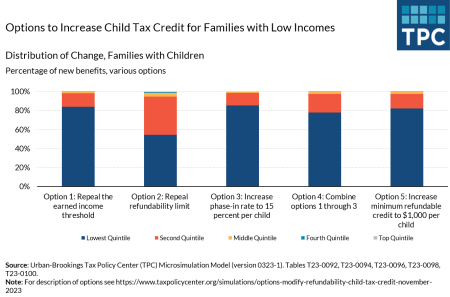Do you pay tax on your crypto gains? The IRS wants you to. Do you claim tax losses for your crypto losses? The IRS probably cares a less about that, but you are entitled to claim your tax losses too, which can lessen the tax bite on your gains. It is hard to believe that it’s been about 15 years since trading in bitcoin began. The crypto population has literally exploded since then, with coins coming and going, not always quietly.
There are many exchanges, many funds, and many mainstream businesses that accept or pay with crypto. And as a refresher, remember that the IRS says crypto is property, not currency. That means most transfers trigger taxes. You might be using it to pay for a new car, a cup of coffee or even a castle in Europe. You might be paying someone for services, either as an independent contractor or as an employee. But no matter what the transaction, you may have a gain or a loss, something quite apart from the income tax impact on the person you are paying.
Take paying for services. Say you pay someone as an independent contractor with crypto. To report the payment, if you are in business and the payments during the year reach $600, you’ll need to issue them an IRS Form 1099. Whatever the type or amount of crypto you use, the IRS will say you paid them the current market value of the crypto on that day.
When you pay an independent contractor and issue a Form 1099, you can’t enter a number of bitcoin on the form. You must put the value in U.S. dollars as of the time of payment. The contractor you pay might keep the crypto, or might sell or transfer it the same day, but that doesn’t impact your taxes.
How about wages paid to employees? Wages paid to employees using crypto are taxable and you must withhold taxes. That means withholding on other cash, or paying them partly in cash so you can send the cash to the IRS. It can be complex.
The IRS’s guidance from 2014 (Notice 2014-21) states that, for tax purposes, cryptocurrency is not currency; it is property. Since crypto is treated as property (e.g., stocks or real estate), taxpayers pay taxes if they realize a gain but may also be able to claim losses when they are realized. As property, taxpayers must know when they bought the crypto, how much they paid and what they received for it.
For stocks and real estate, this may be simple. For crypto, it can be much more difficult. The IRS’s FAQs state that all income, gain or loss involving virtual currency must be reported regardless of the amount and regardless of whether you received a Form W-2 or 1099.
The U.S. Treasury Department has proposed new rules meant to make it harder—much harder—for people not to pay tax on their gains when they sell—or when the trade—their crypto. It will be a while before these rules take effect, and it is possible that they will change before that critical effective date. But make no mistake, change is coming to the crypto tax reporting world.
Starting in 2026, for the 2025 tax year, crypto exchanges are going to be required to report to the IRS and to taxpayers in much the way brokerage firms now handle stock trades. This kind of reporting has long been discussed, Congress passed a law enabling it, and it is no secret that the IRS has wanted it for a while. The IRS and Treasury Department already delayed a rollout of the rules, but now they are gearing up.
The basic idea is that the crypto exchanges will send you and the IRS a Form 1099 keyed to your Social Security Number each year, reporting the total gross proceeds generated on your sales. You already get Form 1099 for many kinds of payments. They usually show up in your mailbox around January 31, for the prior year. And if you receive a Form 1099 but don’t put it on your tax return, it usually means that you’ll get a tax bill from the IRS asking for their cut.
Note the new reporting rules are not reporting your gain, mind you, but the gross amount in dollars that your transactions represent. Assuming that you held your crypto for over a year to get long term capital gain treatment on your gains, the IRS tax rate is up to 23.8%. In contrast, if your gain is ordinary, the tax hit is up to 37%.
Depending on where you live, you need to consider state taxes too. But how about your tax basis, who keeps track of that? The answer is that you have to. But the IRS and Treasury Department are thinking about this too. In addition to reporting gross proceeds starting in January 2026 for 2025 sales, under the proposed new regulations, the crypto exchanges will also have to start reporting your purchase price too—your basis.
That will make it even easier for the IRS to send you a tax bill if you forget to report your gain yourself. The new basis reporting kicks in early in 2027, when reporting sales made in 2026. But the rules would reach back only to crypto purchased in 2023 or later. But still, you can probably assume that there will be lots of zero basis reporting as these rules take effect.
Is all this shocking? Hardly. The IRS has been after crypto for a long while now, even before 2014. But the IRS has had a hard time coming out with guidance, a hard time training its personnel how to audit crypto, and what to do with questionable cases. Some trading platforms have been gearing up for this for a long time, already reporting sales proceeds to the IRS. For them, the “new” system is just business as usual.
What if neither you nor your exchange know your tax basis? Maybe you bought the crypto long ago, and just don’t know. Maybe it was a gift from your uncle Joe, but you don’t know what he paid for it. Under IRS tax rules, when you acquire property by gift, you take a carryover basis, meaning the basis that the giver of the property had. That way, if the person who made the gift has a low basis, you do too—which will yield a bigger tax bite on your gain when you sell it.
If your exchange doesn’t know your basis, they will likely say zero basis. And that is the IRS rule too. If you can’t prove your basis to the IRS, the IRS will assume that your basis is zero. If your basis is small, that’s not a big deal, and you would probably just happily pay the 23.8% federal capital gain tax. (Again, 3.8% of that is the net investment income tax).
But if your basis was a lot—but you just can’t prove it—getting stuck with a zero basis can be painful. The tax impact might even be made more difficult by the wild fluctuations in value that tend to characterize crypto investments. Many crypto investors have made purchases at multiple times and for many years.
IRS guidance indicates that basis is determined by the fair market value of the crypto in U.S. dollars when received. If the crypto was received from an established exchange, the value may be easily determined. However, if the taxpayer received the crypto through peer-to-peer transactions, or if the crypto does not have a published value, it can be considerably messier. The IRS still requires taxpayers to use some reasonable method to value the cryptocurrency and to establish that such value is accurate.
Various commentators are already firing off comments to the new proposed rules, and the Treasury Department asked for comments. But how much these rules will change, if at all, remains to be seen. The safest course, which exchanges clearly know, is to gear up and comply. And investors and businesses handling crypto should gear up for tax compliance too, if they have not already.
Read the full article here








